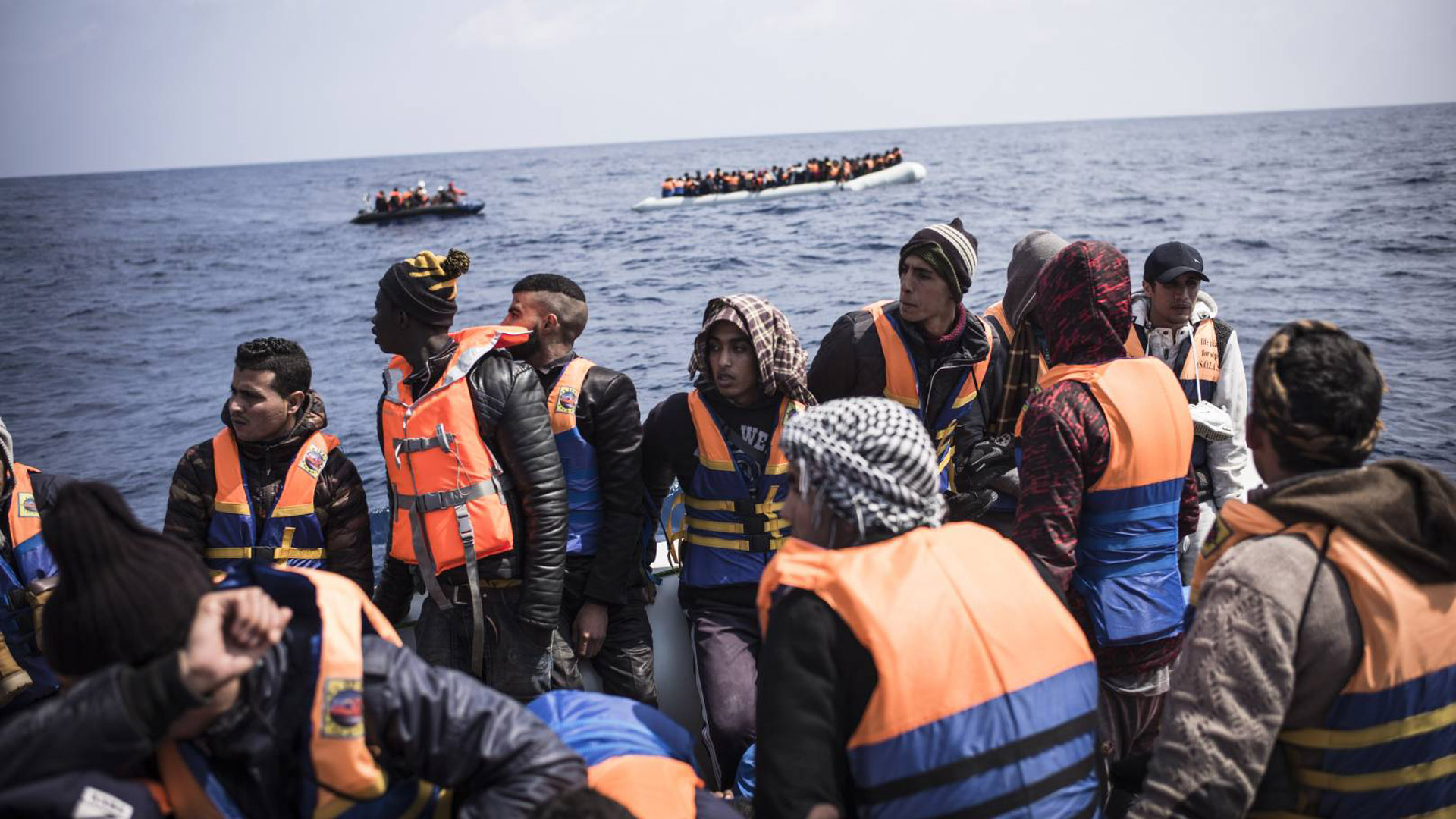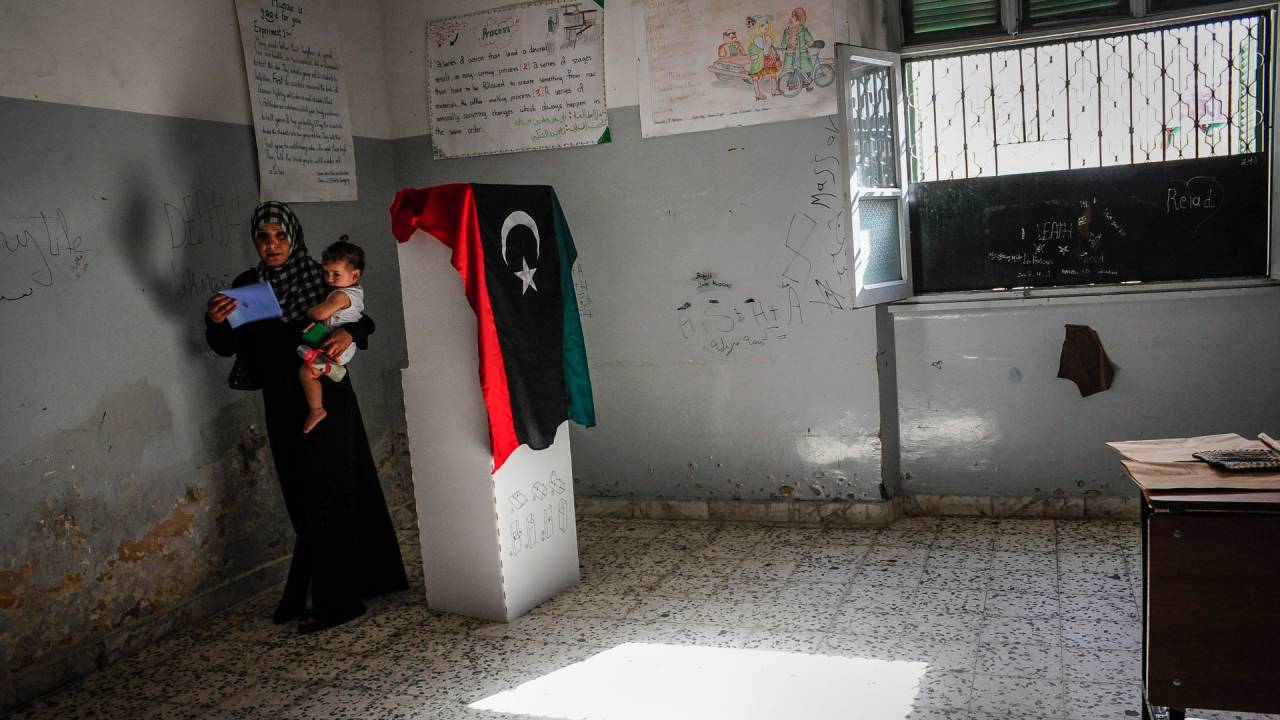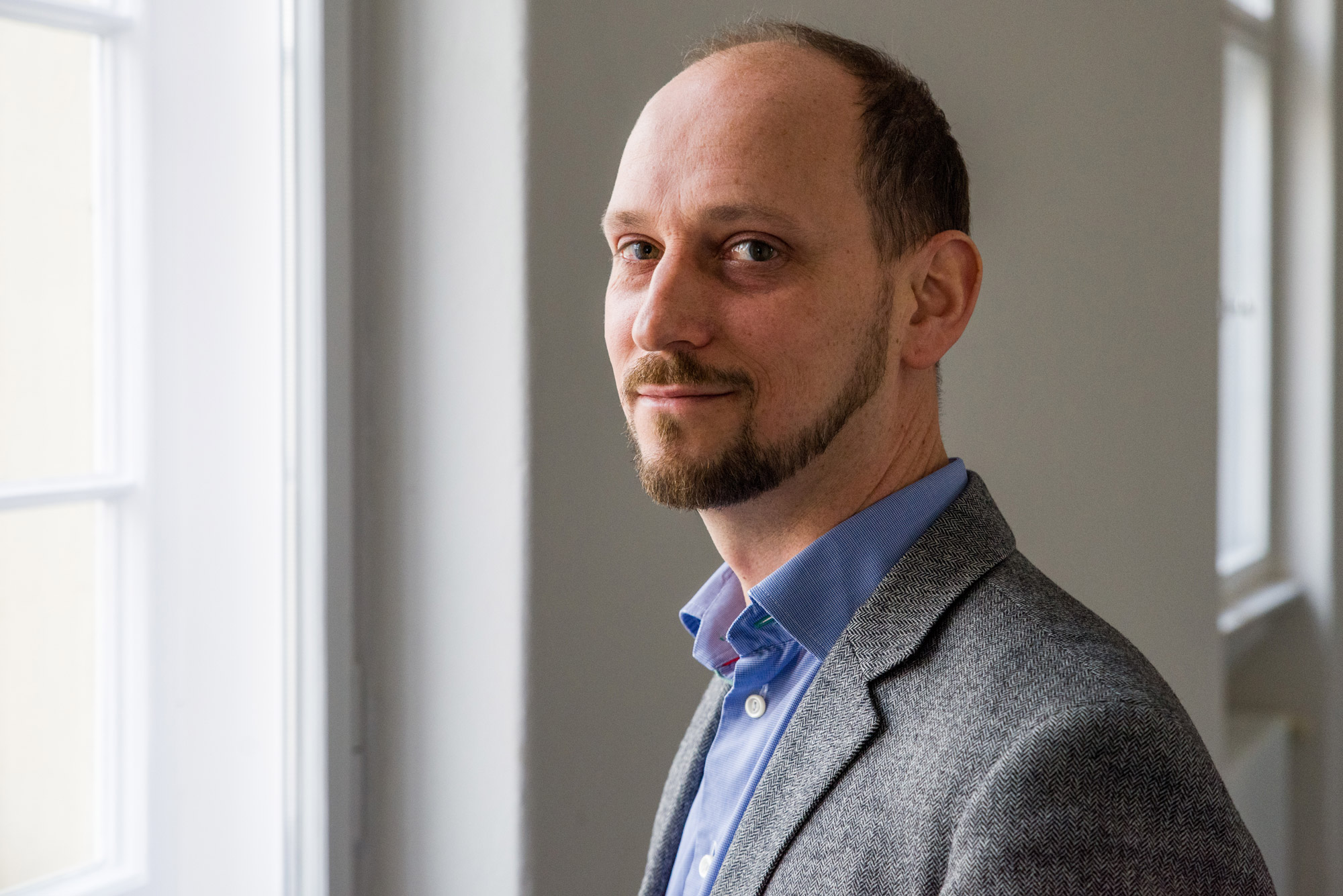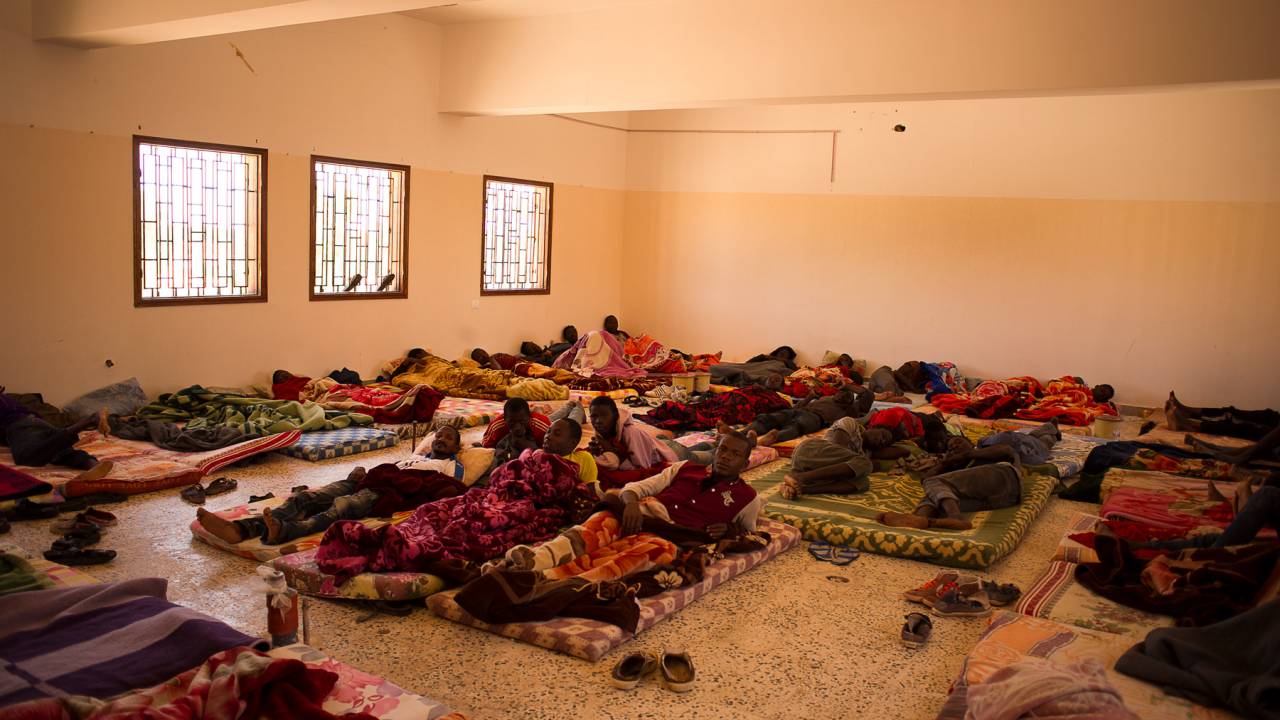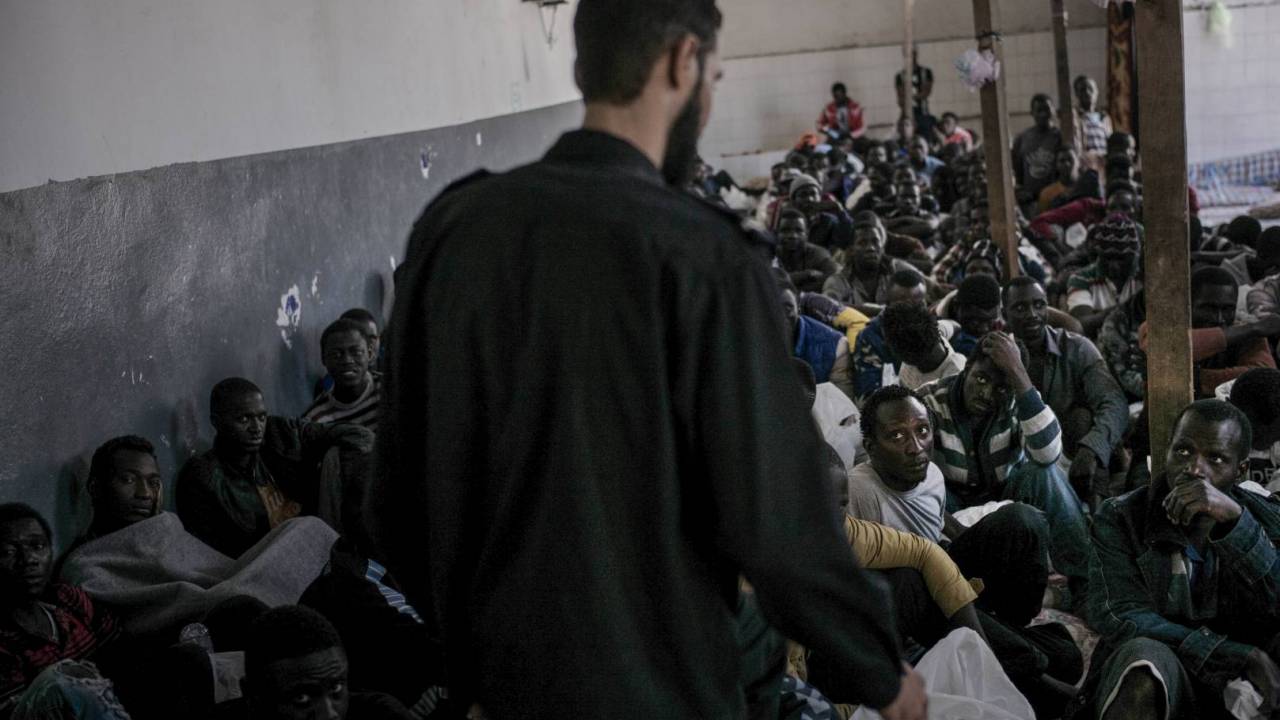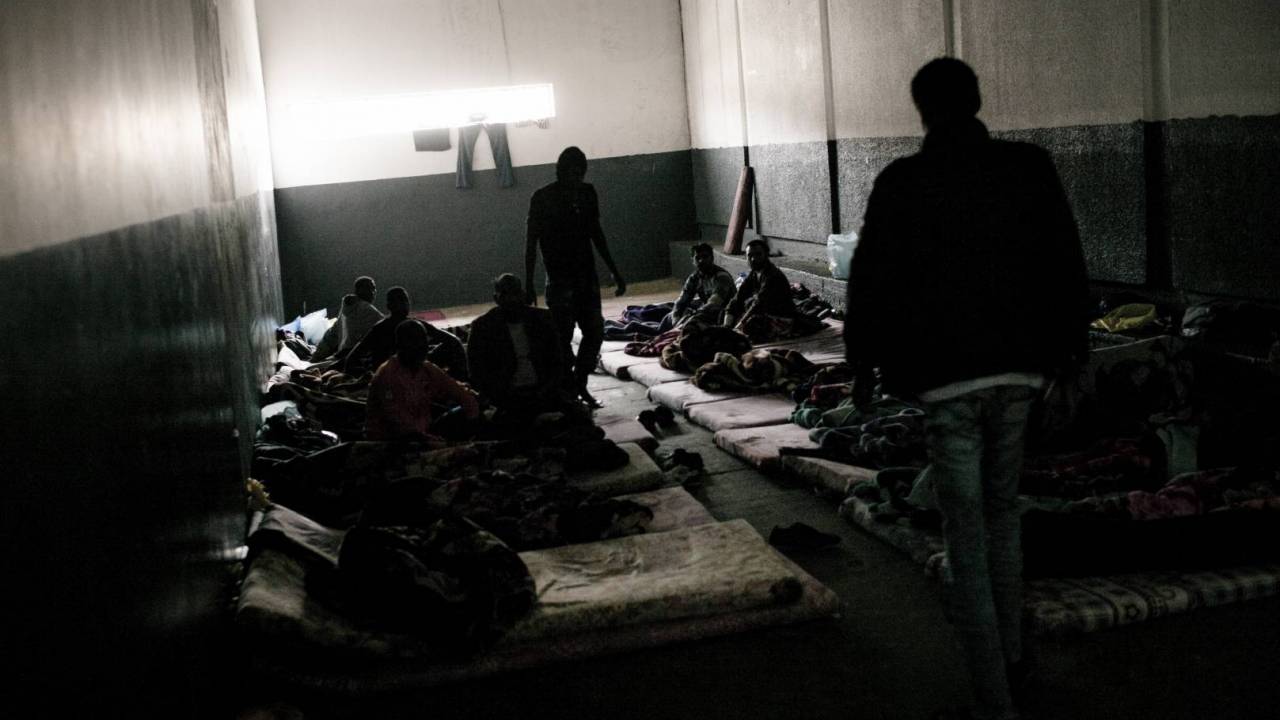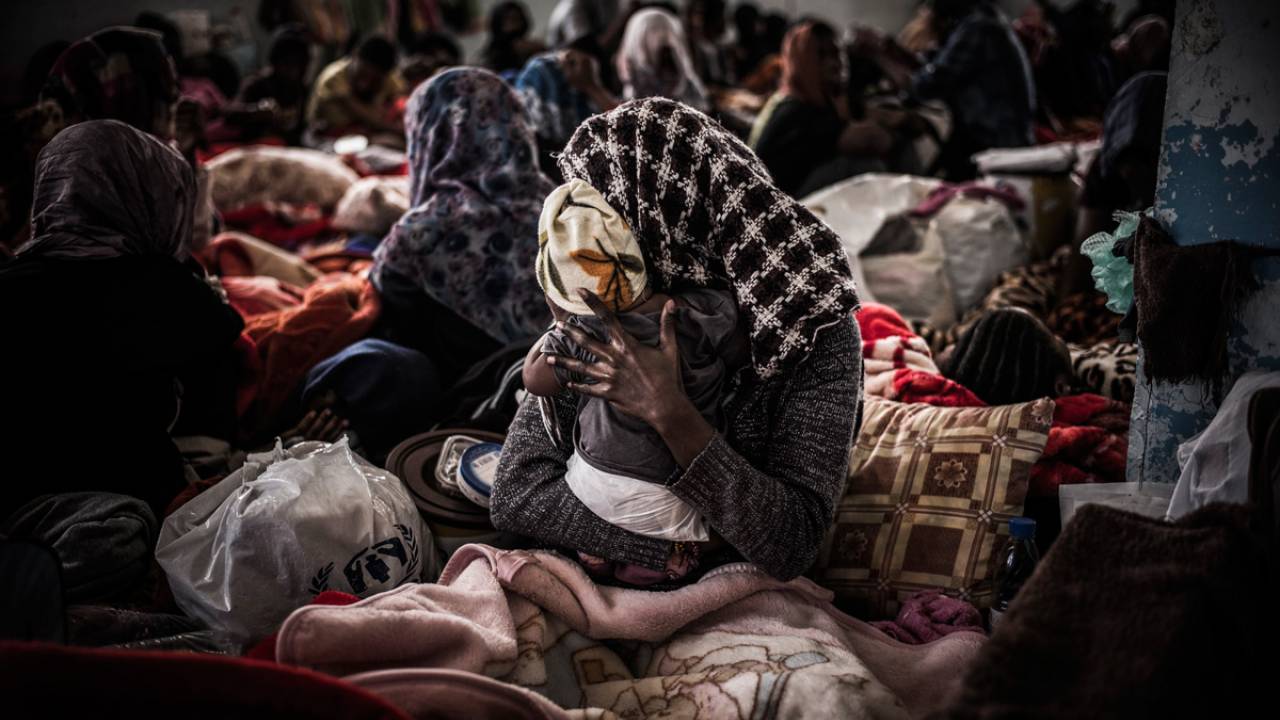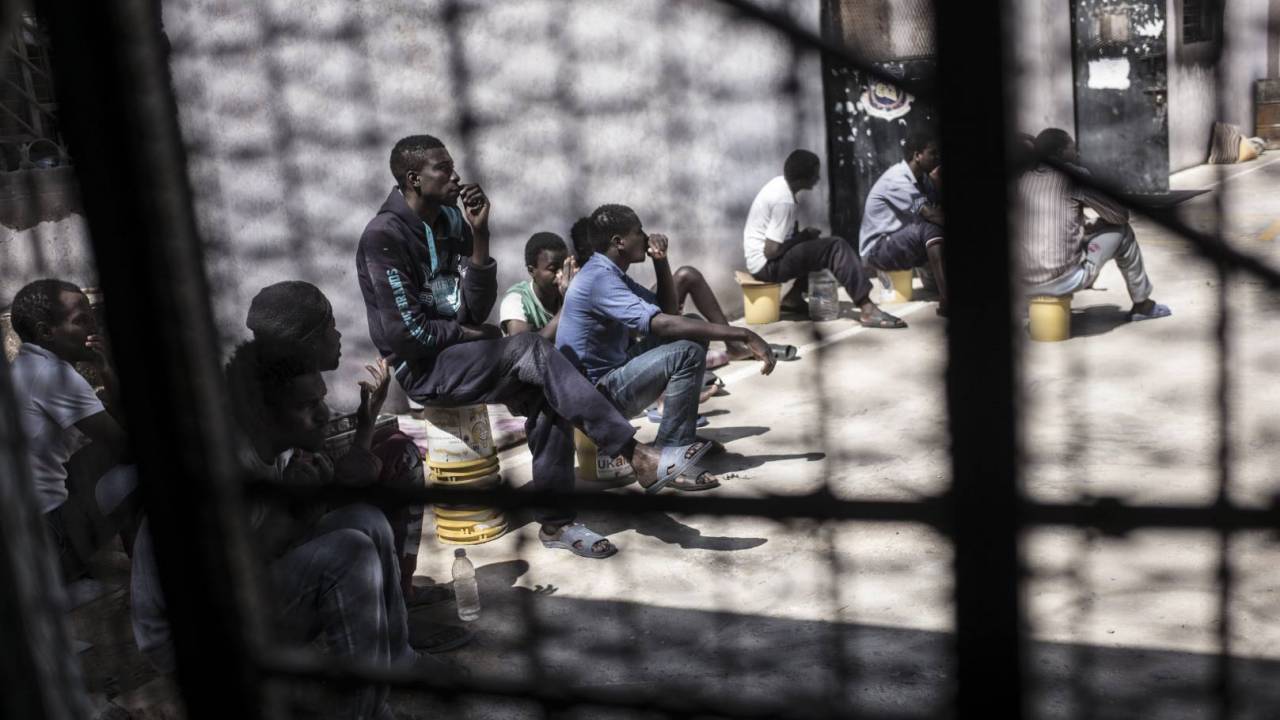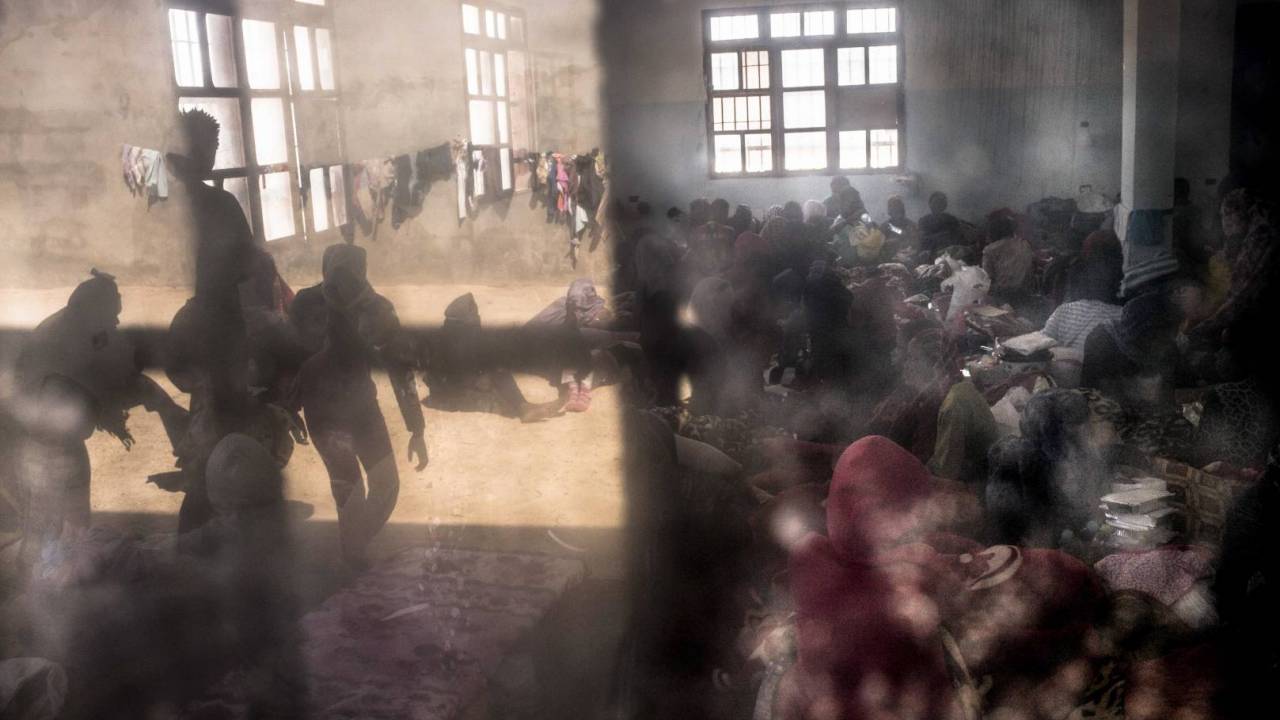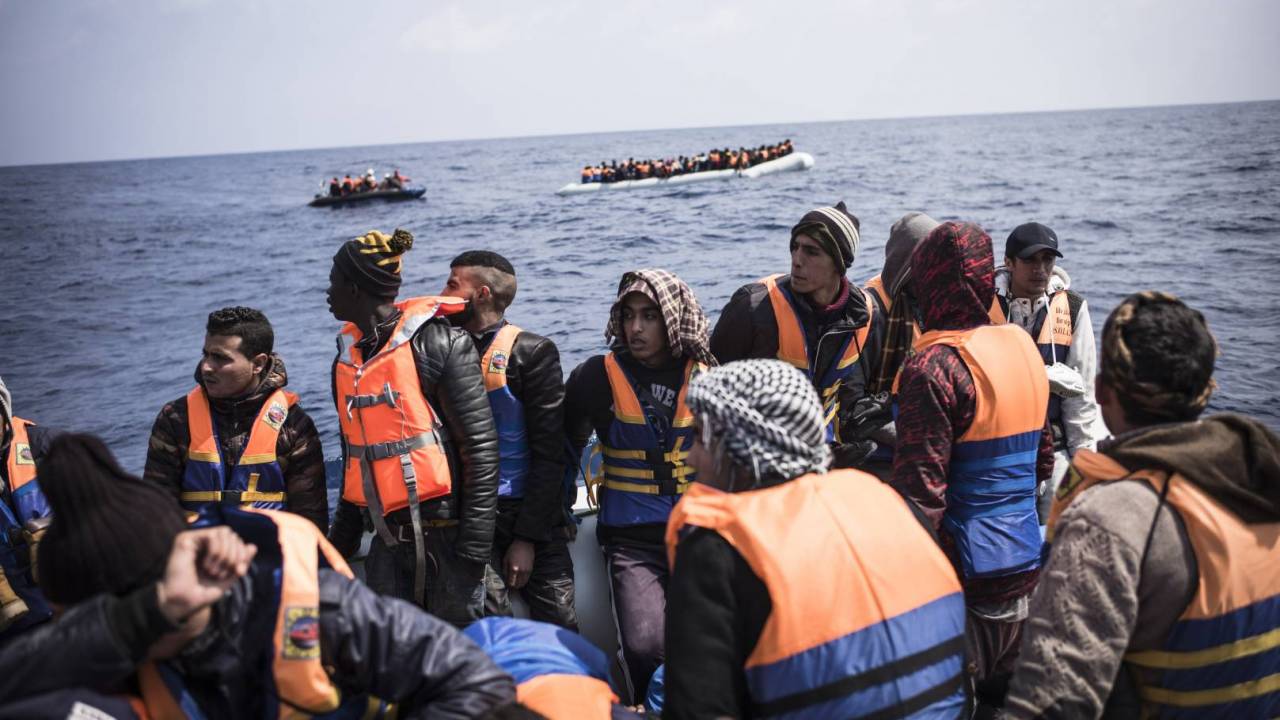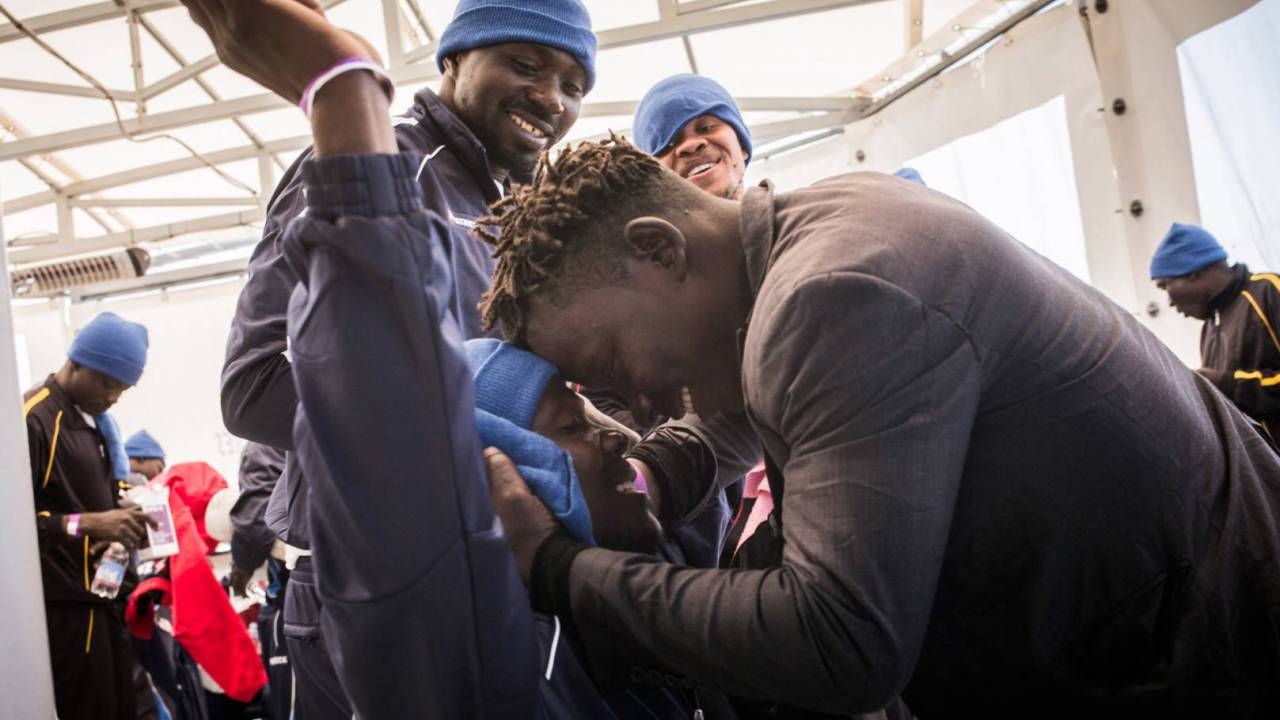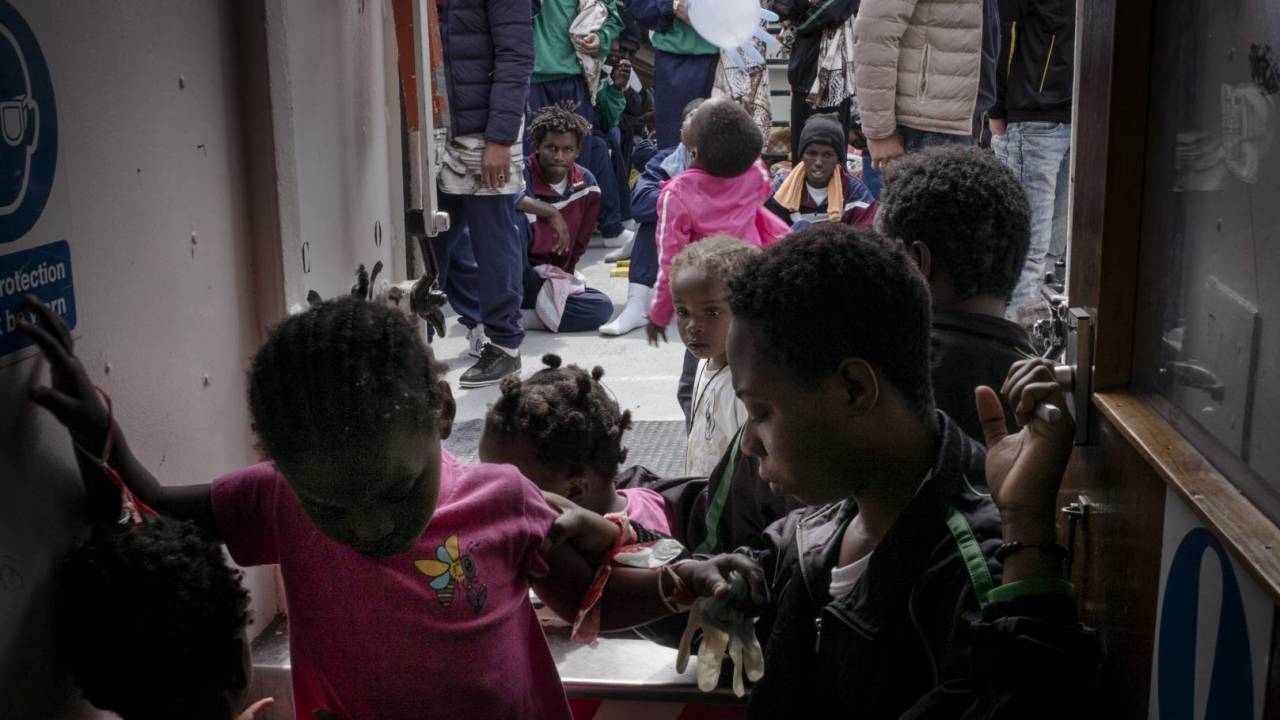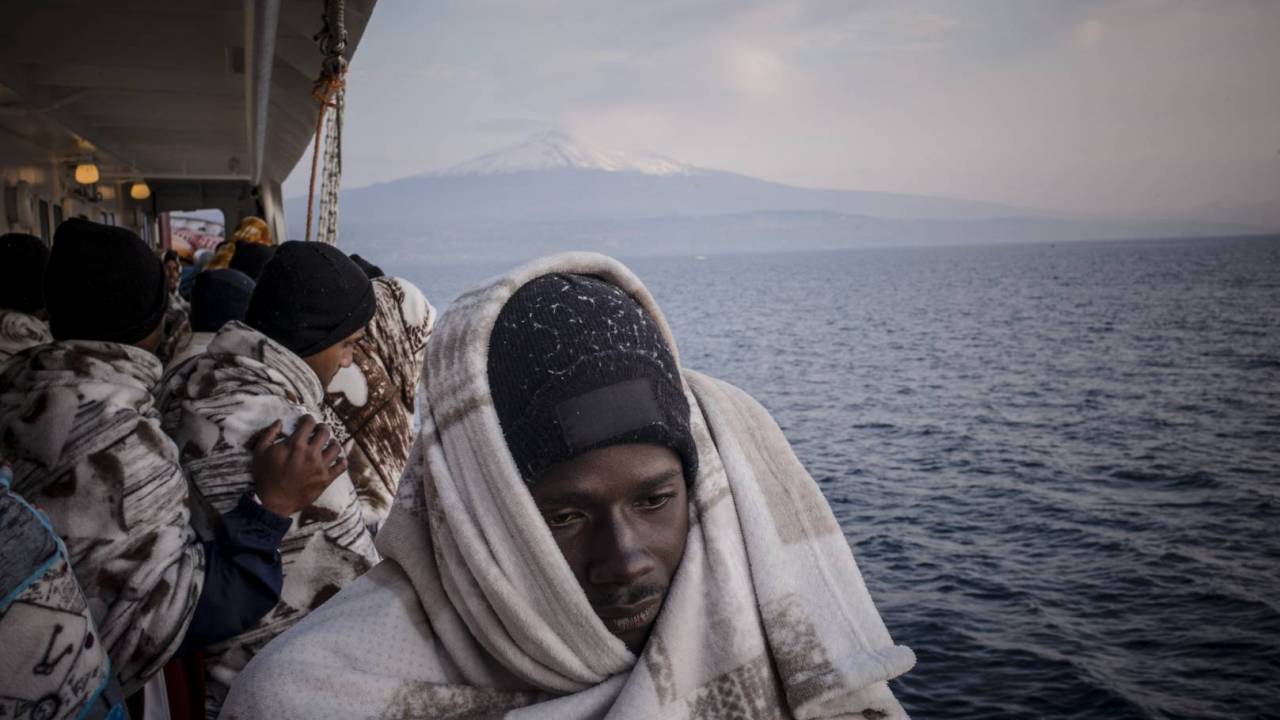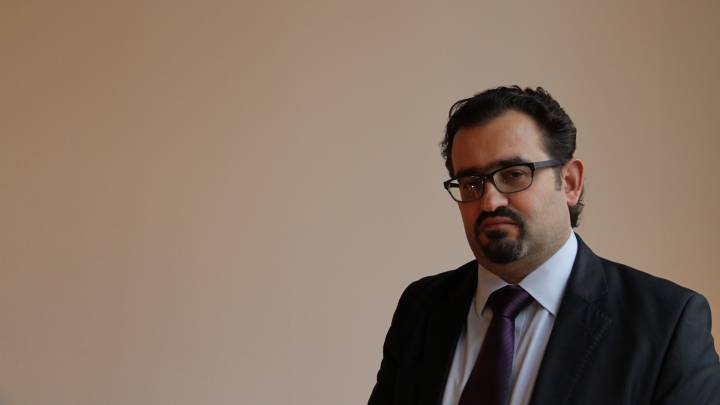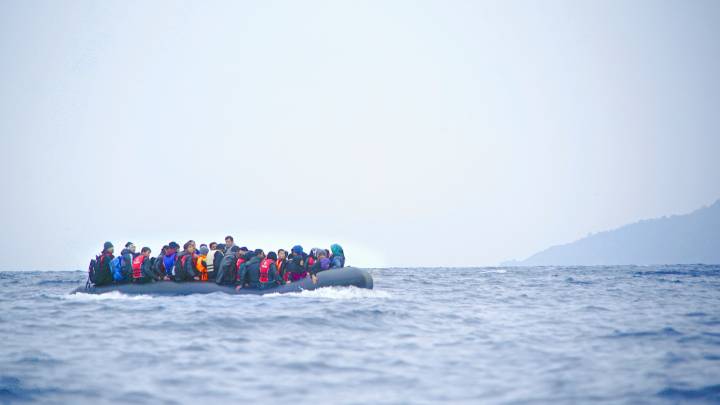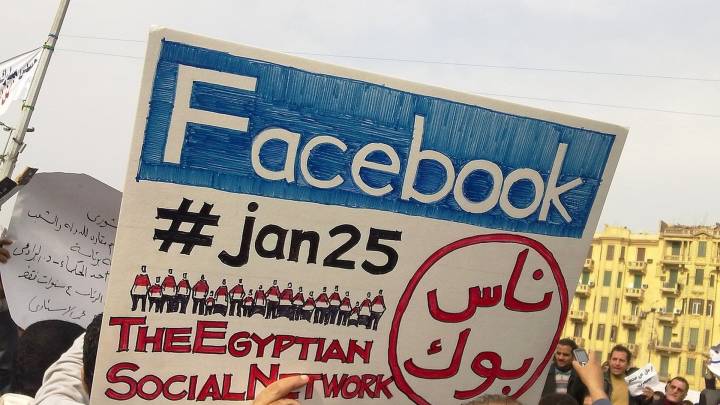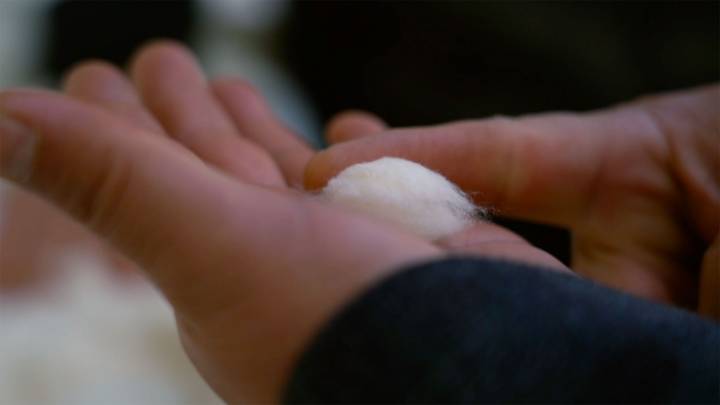European governments are accused of complicity in human rights violations in Libya. Their actions are also reducing the country's chances for political stability, believes Wolfram Lacher of the German Institute for International and Security Affairs.
zenith: How would you characterise the situation in Libya today?
Wolfram Lacher: It’s a situation of advanced state collapse. There is no government worthy of the name, and there has never been an agreement between the main parties to the conflict. The Skhirat agreement of December 2015 was not a deal between the main parties to the conflict; it was, rather, a deal between a coalition of the willing, of moderates and opportunists.
At the same time, I wouldn’t call what is currently happening in Libya a civil war, because violence is confined temporally or geographically, and because there are no clear divides anymore. The conflict landscape has become increasingly fragmented, and anything now appears to be possible. We have seen some very surprising alliances over the last weeks and months as actors reposition themselves. What we are not seeing is the formation of political and military forces that have the internal coherence to be able to reach a sustainable settlement.
How do you think this situation might play out over the next year or two?
I don’t really see any evidence that things are moving towards a resolution of these conflicts. On the other hand, I don’t see any particular party or force winning out or becoming more dominant in these conflicts. Right now the situation is very difficult to forecast.
Can you see a scenario where a military leader becomes a strong-man ruler in Libya – for example, if Field Marshal Khalifa Haftar could mobilise with the backing of the UAE, Egypt and the United States?
That would first trigger years and years of serious conflict. A military advance by Haftar in western Libya would be seen as an existential threat in many western Libyan cities, even by communities as a whole. In some of these communities, armed groups are deeply socially embedded – not all of them are opportunistic militias that will change sides as soon as the balance of power changes. They will defend their cities against what they see as an existential threat, because Haftar’s military structure relies on particular communities in western Libya to fight against others. This would trigger an escalation unlike what we have seen over the past few years.
Earlier this month [December 2017] there was a meeting of Libyan mayors in Tripoli, and there has always been this discussion of decentralisation, localisation of powers, services – do you think this is a possible way forward, whether by changing the power dynamic or simply improving the lives of ordinary Libyans?
Decentralisation will be a big issue once there is a central government in Libya. But it won’t work without an effective central government. Libya’s economy is ultra-centralised, and it has to be because it relies on the oil revenues, and they have to be managed through a central government. If that’s not the case, then decentralisation cannot work.
How does it work with the oil revenues? These are held by the Central Bank, but how are they distributed, such as paying public sector wages?
The oil revenues go to the Central Bank. These funds are in dollars and supply Libya’s foreign exchange reserves, held mostly in foreign currency bonds. Since institutions split in 2014, the Central Bank has become increasingly independent. It has essentially become a central bank and finance ministry in one, because the Central Bank governor, al-Saddiq al-Kabir, is the one who decides over budgets and payments. The bank pays out money through the ministries for salaries and other items, but the governments have little room for manoeuvre for managing these payments, or manipulating them for their advantage. A salary that’s destined for a particular employee will simply go into that person’s account.
Salamé has definitely bought in new momentum. He has succeeded in restoring the UN’s role as the leading mediator in Libya, which is no mean feat Because the Tobruk-based parliament has neither accepted the Presidency Council’s proposed ministerial line-up, nor passed a budget, the Central Bank has refused to give the Presidency Council access to regular funding, on the grounds that there is no legislative oversight. This has been a big issue between the Presidency Council and the Central Bank over the last two years. The Presidency Council has always had to go to the Central Bank to get some money for what it aims to do, and the funds it has been able to mobilise have been very limited.
So the Central Bank has become an independent entity?
Yes, just as the National Oil Company (NOC) has become more independent, because it has built relations across political divides. Of course, central banks should be independent in managing monetary policy, but Libya’s Central Bank has also become independent in allocating budgets and offering access to foreign currency at the official exchange rate for imports, which provides opportunities for fraud on a large scale. The Central Bank’s independence mainly stems from the fact that international recognition, particularly recognition by Western governments, central banks, and the international financial institutions, holds al-Saddiq al-Kabir in place.
You’ve written that after the 2011 military intervention by Western governments, an ongoing stabilisation effort was not an option, as it would have been rejected by Libyans. But since the intervention, is there a moral responsibility for European powers and the United States to be closely involved and supportive?
In 2014-15, when the struggles escalated into a new civil war, there was a situation where you could say, ‘The states which intervened in 2011 now have a responsibility to step in and try to broker a solution to the conflicts’. At that time they did so very insufficiently, as they were either unable or unwilling to exert pressure on the regional states that were meddling and fueling the conflicts in Libya.
But today, it’s no longer a question of who has responsibility, it’s more that foreign states have become increasingly entangled in Libya’s conflicts. Now, the external actors involved in Libya’s conflicts are no longer primarily regional states as it was in 2014-15, but increasingly it’s also Western states, as well as Russia, each of them pursuing their narrow interests and building relations with the conflicting parties in Libya. There is Italy, which is focusing on curbing migrant flows. There is France’s Macron, who is using the turmoil in Libya as an opportunity for quick foreign policy wins that are not backed up by any substance. The overall picture is one of international cacophony, and the formation of vested, competing international interests in Libya.
There are a lot of states that are ‘involved’ in Libya – are they all pursuing narrow sets of interests? Are there some countries that are being more virtuous or useful?
Among Libya’s neighbours, Algeria and Tunisia – for perhaps different reasons – have so far always tried to build relations with all parties on the ground, have tried to promote efforts for a political solution, but have not tried to put themselves forward as lead mediators, rather trying to support the UN in this role. They have really played a positive role.
Without going into detail on US foreign policy since Donald Trump became president, there has been a kind of vacuum. Has this affected the Libyan context?
The withdrawal of the US from the efforts to broker a political solution in Libya has left the field wide open for multiplying unilateral initiatives by Russia, France, Egypt etc. But perhaps we should also be grateful for the Trump administration’s lack of interest in Libya. When Trump came in, many expected him to back one side in Libya, which would have significantly escalated the conflicts there, and that hasn’t happened.
Ghassan Salamé became the new head of the UN mission to Libya this year. But it is frequently said that the external countries acting for their own interests in Libya – the cacophony you referred to earlier – undermines the UN’s efforts. Do you agree with this?
Yes, but that was particularly the case in the final months of Martin Kobler’s tenure as [head of UNSMIL], when the UN really lost its role as the lead mediator, because it saw its role as mainly supporting the [Tripoli-based] Government of National Accord (GNA) and the implementation of the [Skhirat] agreement that never got anywhere. So it lost its role as an impartial player in Libya, and that – along with the fact that the situation was completely deadlocked – was what allowed various sides to step in and try to mediate.
Salamé has definitely bought in new momentum. He has succeeded in restoring the UN’s role as the leading mediator in Libya, which is no mean feat. He has done that by parting ways with his predecessor’s focus on supporting the GNA, by re-establishing the UN’s impartiality, and by reaching out to a much wider range of constituencies in Libya. He has also very quickly gained a better understanding of Libya’s conflicts than his predecessors appear to have had. However, he is operating under very difficult conditions – internationally and in Libya – and the odds continue to be against a more sustainable political settlement.
Are the actions and interests of the various countries involved in Libya still undermining the UN’s efforts to stabilise the country? Would it be helpful if they pulled back?
Well, there is no way around the UN trying to bring in these states into the process. Mediation in Libya is also a mediation between these competing international interests. That’s how it worked under [former UN mission heads] Bernardino León and Kobler, and that won’t change. The problem is that the UN has very little influence or leverage over these states to change their stance in Libya.
You recently tweeted to question whether payments to militias in Libya – designed to try to shut down migration – would fluctuate with European election cycles. More broadly Libya’s main strategic importance to the EU seems to be this issue of migration – after all, Libya is the number one transit country for illegal migration into Europe.
Yes, well that is since the deal [in March 2016] with Turkey. It’s relatively new that the European focus in Libya is so overwhelmingly on the migration issue – this has been the case only since the summer of 2016, when migrant crossings reached unprecedented heights, and when the IS presence in Libya had also been largely contained. This focus on migration has superseded the previous top priority of European policy of supporting the re-establishment of a functioning central authority on the basis of a negotiated settlement.
It’s obvious that the EU – and Italy in particular – are complicit in the economy of migrant exploitation in Libya.The short-term measures that have been taken over the past year to reduce migrant crossings clearly run counter to the objective of re-establishing central authority. The now almost-exclusive European focus on getting the Presidency Council to cooperate on migration undermines the government in Tripoli because it makes it appear as a European puppet.
The Italian government’s arrangements with local militias in western Libyan coastal cities have had the effect of strengthening local players vis-à-vis the Tripoli government. This policy suggests that Europeans have abandoned the goal of re-establishing functioning central authority in favour of short-term measures to curb migration - and here I’m only talking about the political effects of these policies, to say nothing of the disastrous humanitarian consequences.
European countries seem to be funding groups such as the Libyan ‘Coast Guard’ and armed groups. We see immigrants being held in prison camps, and that funding is helping maintain these camps. Just recently Amnesty International accused the EU of being complicit in horrific human rights abuses. Is this how you see it?
Absolutely, it’s obvious that the EU – and Italy in particular – are complicit in the economy of migrant exploitation in Libya.
And that means that the network of armed groups involved in this trade are given further incentive to stay involved?
Yes. In reality we don’t know how much money went to these groups in Sabratha or Zawiya, but I strongly suspect that money changed hands because it’s a business after all. But profit is not the only incentive, it’s also about these groups obtaining official status as units of the Tripoli government’s security forces, and thereby safe-guarding their interests also in the medium term.
Does this undermine the moral position or authority of these EU governments, from the point of view of Libyans?
Yes. Not that, in my experience, Libyans in general would hold the moral authority of EU governments in very high esteem, but certainly they do so much less after seeing how the EU and the European governments support criminal networks disguised as the Libyan Coast Guard.
See photographs by Guillaume Binet of the migration crisis in Libya
The CNN report on ‘slave auctions’ in Libya kicked off a huge international social media response. At the same time, a lot people who follow Libya closely were saying, “This is nothing new.” Do you see the slavery issue as being significant for the international view of Libya and even pressure?
It suddenly focused a huge amount of international attention on the fate of migrants in Libya, but it’s hard to say how sustained the impact will be. The main attempt to use this momentum to make policy was Macron’s initiative for an imminent military and police operation to evacuate migrants from Libya, which was obviously unrealistic and an ill-advised thing to say. Libyan reactions to the international outcry were also interesting. There was a lot of denial in Libya that ‘slave auctions’ were taking place; a lot of legitimate questioning of the context in which the video was taken; and the biggest reaction was to interpret this as a conspiracy against Libya, particularly following the statements by Macron and others that this would trigger an intervention. Given that everyone knew beforehand what was taking place in Libya, the outcry seemed somewhat artificial, and this made people suspicious.
In terms of the overall migration issue, do you see any possible constructive solutions? For example, wide-scale repatriation of migrants through the International Organization for Migration (IOM)?
Yes, but widespread repatriation would require first of all that people want to go back. It would require their states to take them back, and it would probably mean that a lot of seasonal migrants who are in Libya to work, and not to go on to the EU, would use this as a free means to get back to their countries.
Is more development funding in the migrant source countries the solution?
I don’t believe in the slogans of tackling the root cause of migration. Migration towards Europe will continue to increase even if – or especially if – development in Africa accelerates. A positive relationship between economic development and growing migration is well established. But when it comes to the role of Libya as a transit country, there are currently no solutions to be found in Libya. The focus in Libya should be on re-establishing a state that can deal with managing migrant flows. The attempts to improve conditions in migrant detention centres will be in vain as long as there is no functioning central authority. These efforts are really a fig leaf for the actual policy of pushing migrants back to disastrous conditions in Libya. If Europeans are absolutely determined to invest in paying their neighbours to hold back migrants, then it would be better to do this further upstream in Libya’s southern neighbours, rather than in the collapsed state of Libya.
Finally, there are new elections planned for next year. Do these present a potential way forward for the stabilisation of Libya?
It is very difficult to see the conditions for successful elections being put in place anytime soon. Holding elections would first require a new political settlement; it would require the two parliaments to get their act together to provide a legislative basis for elections. Many believe it would require adopting the controversial draft constitution in a popular referendum before elections can take place. Most importantly, it would require armed groups across the country to commit to enabling free and fair elections, and to commit to honouring the results. None of these conditions are anywhere near to being realised, and I don’t believe it’s worth thinking about what the impact of elections would be – let’s first think about how elections might become a realistic option.
Wolfram Lacher is Senior Associate at the Middle East and North Africa research division of the Stiftung Wissenschaft und Politik (the German Institute for International and Security Affairs, SWP) in Berlin.

